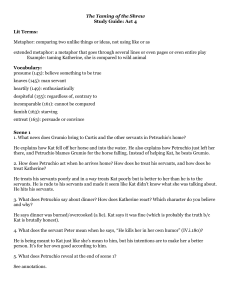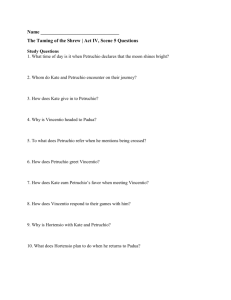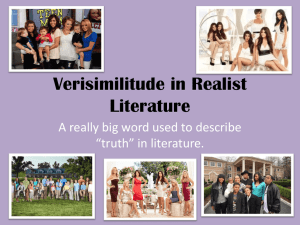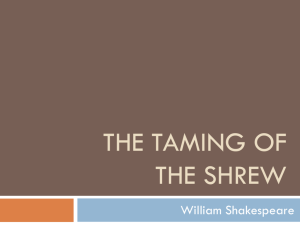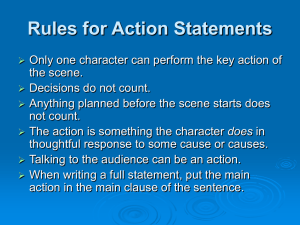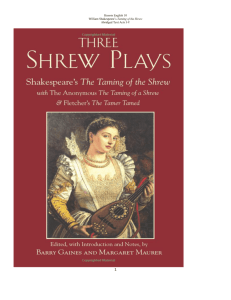Taming of the Shrew Key Questions, Considerations * INDUCTION o
advertisement
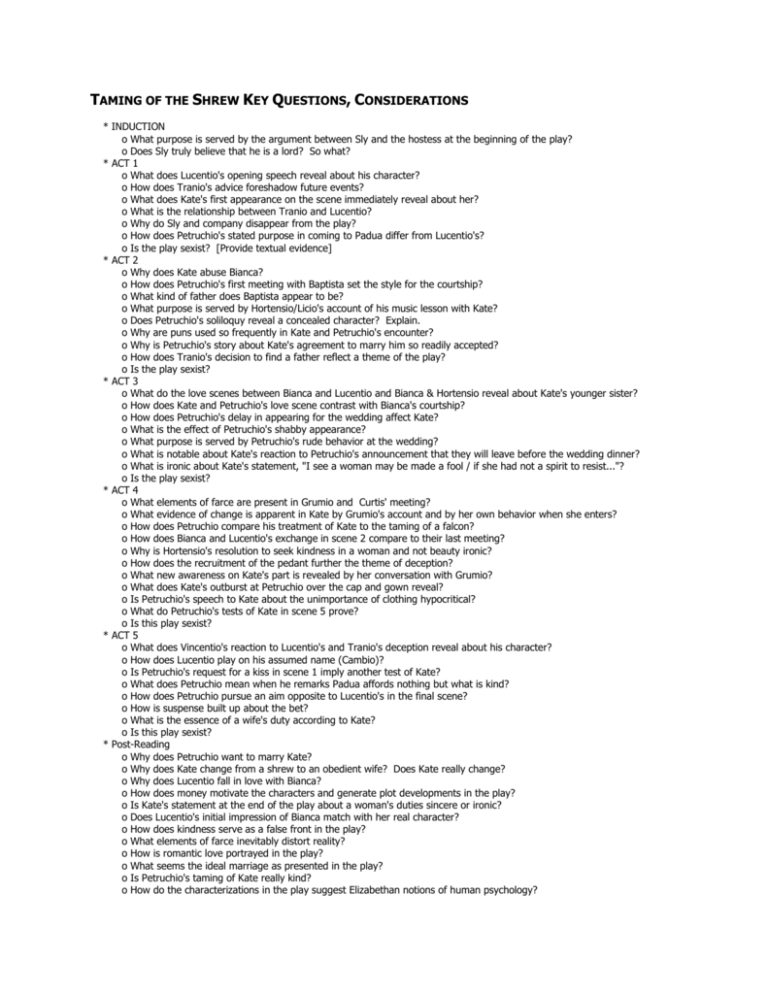
TAMING OF THE SHREW KEY QUESTIONS, CONSIDERATIONS * INDUCTION o What purpose is served by the argument between Sly and the hostess at the beginning of the play? o Does Sly truly believe that he is a lord? So what? * ACT 1 o What does Lucentio's opening speech reveal about his character? o How does Tranio's advice foreshadow future events? o What does Kate's first appearance on the scene immediately reveal about her? o What is the relationship between Tranio and Lucentio? o Why do Sly and company disappear from the play? o How does Petruchio's stated purpose in coming to Padua differ from Lucentio's? o Is the play sexist? [Provide textual evidence] * ACT 2 o Why does Kate abuse Bianca? o How does Petruchio's first meeting with Baptista set the style for the courtship? o What kind of father does Baptista appear to be? o What purpose is served by Hortensio/Licio's account of his music lesson with Kate? o Does Petruchio's soliloquy reveal a concealed character? Explain. o Why are puns used so frequently in Kate and Petruchio's encounter? o Why is Petruchio's story about Kate's agreement to marry him so readily accepted? o How does Tranio's decision to find a father reflect a theme of the play? o Is the play sexist? * ACT 3 o What do the love scenes between Bianca and Lucentio and Bianca & Hortensio reveal about Kate's younger sister? o How does Kate and Petruchio's love scene contrast with Bianca's courtship? o How does Petruchio's delay in appearing for the wedding affect Kate? o What is the effect of Petruchio's shabby appearance? o What purpose is served by Petruchio's rude behavior at the wedding? o What is notable about Kate's reaction to Petruchio's announcement that they will leave before the wedding dinner? o What is ironic about Kate's statement, "I see a woman may be made a fool / if she had not a spirit to resist..."? o Is the play sexist? * ACT 4 o What elements of farce are present in Grumio and Curtis' meeting? o What evidence of change is apparent in Kate by Grumio's account and by her own behavior when she enters? o How does Petruchio compare his treatment of Kate to the taming of a falcon? o How does Bianca and Lucentio's exchange in scene 2 compare to their last meeting? o Why is Hortensio's resolution to seek kindness in a woman and not beauty ironic? o How does the recruitment of the pedant further the theme of deception? o What new awareness on Kate's part is revealed by her conversation with Grumio? o What does Kate's outburst at Petruchio over the cap and gown reveal? o Is Petruchio's speech to Kate about the unimportance of clothing hypocritical? o What do Petruchio's tests of Kate in scene 5 prove? o Is this play sexist? * ACT 5 o What does Vincentio's reaction to Lucentio's and Tranio's deception reveal about his character? o How does Lucentio play on his assumed name (Cambio)? o Is Petruchio's request for a kiss in scene 1 imply another test of Kate? o What does Petruchio mean when he remarks Padua affords nothing but what is kind? o How does Petruchio pursue an aim opposite to Lucentio's in the final scene? o How is suspense built up about the bet? o What is the essence of a wife's duty according to Kate? o Is this play sexist? * Post-Reading o Why does Petruchio want to marry Kate? o Why does Kate change from a shrew to an obedient wife? Does Kate really change? o Why does Lucentio fall in love with Bianca? o How does money motivate the characters and generate plot developments in the play? o Is Kate's statement at the end of the play about a woman's duties sincere or ironic? o Does Lucentio's initial impression of Bianca match with her real character? o How does kindness serve as a false front in the play? o What elements of farce inevitably distort reality? o How is romantic love portrayed in the play? o What seems the ideal marriage as presented in the play? o Is Petruchio's taming of Kate really kind? o How do the characterizations in the play suggest Elizabethan notions of human psychology? o Is a work like this relevant today? o Is the play universal?
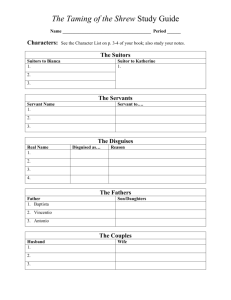
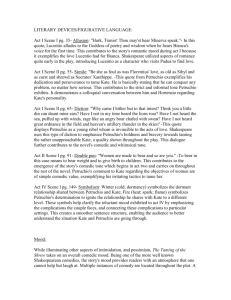
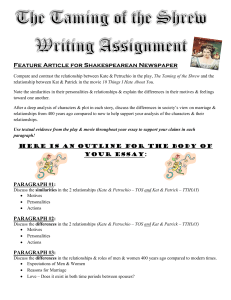
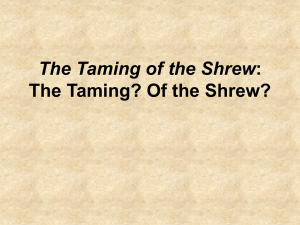
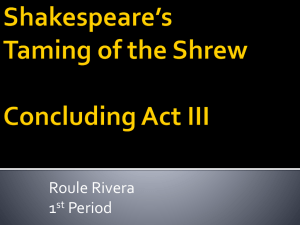
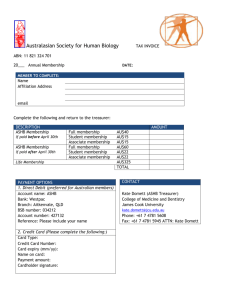
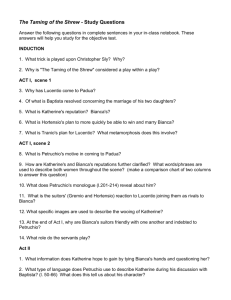
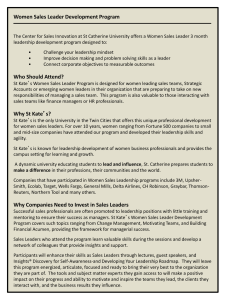
![The mysterious Benedict society[1]](http://s2.studylib.net/store/data/005310565_1-e9948b5ddd1c202ee3a03036ea446d49-300x300.png)
